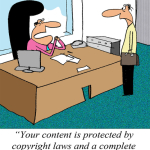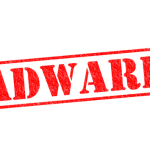
The Righthaven Debacle, 5 Years Later
You probably recall Righthaven, the now-defunct copyright enforcement entity (some might call it a copyright troll) that purchased newspapers’ copyrights so it could sue small-time bloggers who republished articles; after suing, it would demand financial settlements the bloggers couldn’t afford….

It Takes a Default Judgment to Win a 17 USC 512(f) Case–Automattic v. Steiner
In enacting the DMCA’s notice-and-takedown system, Congress knew copyright owners and others might send takedown notices overzealously. To discourage abuses of the notice-and-takedown system, Congress enacted 17 USC 512(f) to create a new cause of action for sending bogus takedown…

Trial Court Doesn’t Unmask Parodist Twitterers
Plantiffs are trying to unmask Twitter users who make derogatory posts about the plaintiff corporate entities and their CEO. (Initial blog post about the case filing here.) They filed suit in the Western District of Washington, and sought and were…

Two Recent Spam Cases Look at Falsification of Origin and Subject Line Claims
Wagner v. Spire Vision: This is a spam lawsuit alleging receipt of emails in violation of California’s spam statute. There are 25 emails at issue. Header information claims: The California statute prohibits “falsified, misrepresented, or forged” header information. The court…

Adware Advertiser Sidesteps Liability
This case involves a browser plug-in from IMS, whose affiliates allegedly surreptitiously installed the plug-in on users’ computers. The plug-in allegedly caused pop-up ads to appear when users visited designated websites. Reed Elsevier allegedly advertised via these pop-up ads, triggering…
